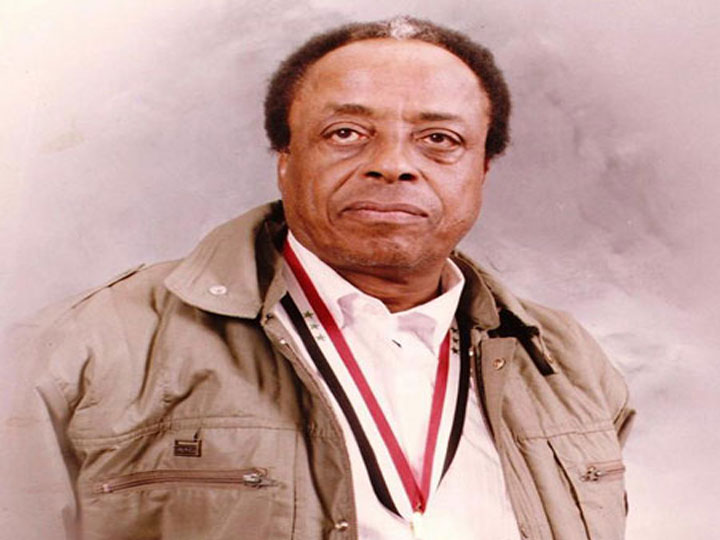
Muhammad Al-Fayturi was born in Sudan – he does not know the year of his birth – in Al-Janina on the western border of Sudan. His father was a Sufi sheikh of Libyan Bedouin extraction while his mother was from a Gulf tribe which traced its lineage back to the Prophet Muhammad.
Soon after his birth his family moved to Alexandria where he spent his childhood except for a brief spell during the Second World War when the family fled to the Egyptian countryside to escape the German bombing. He attended Al-Azhar University in Cairo until 1953 where he studied the Islamic sciences philosophy and history then attended Cairo University where he studied literature for two years. In 1953 he published his first collection of poems entitled ‘Songs of Africa.’
Since then Al-Fayturi has published a number of other collections including ‘Sunrise and Moonset’ and ‘Lover from Africa’. He has also lived and worked as a journalist and writer in a variety of different countries including Lebanon Libya and Sudan itself. His poetry particularly draws on his experience as an African living amongst Arabs dealing as it does with issues of race class and colonialism and it is also influenced to some extent by Sufi philosophy.
Collection of poems
When night casts its net of shadows over the streets of the city
shrouding it in grief,
you can still see them —
slumped in silence, staring at the cracks.
And you think they are calm,
but you’re wrong — they’re on fire!
When darkness raises its statues of marble
on the streets of the city
then smashes them in fury
then the city will lead all the people
down the spiral staircase of the night
into the deep distant past.
The past with its ambergris shores
is dreaming of memories
too deeply to be roused.
And inside everyone something begins to stir —
a fresh wall made of clay,
stuck with diamonds and desires.
When night sleeps and day wakes
raising its candles in the dark
peace ebbs back to its home in the grave.
At that, the heart of the city
turns futile and wretched —
it is an oven at noon, a lamp for the blind.
Like ancient Africa, the city is truly
an old woman veiled in frankincense,
a great pit of fire, the horn of a ram,
an amulet of old prayers, a night full of mirrors,
the dance of black women, naked,
shouting their black joy.
This coma of sins was kept alive by the master,
ships filled with slave girls,
with musk, ivory and saffron —
gifts, all without joy, despatched by the winds of all ages
to the white man of our time
to the master of all time.
A plantation stretches out in imagination
to clothe the naked, to loosen their clothes,
flowing like its ancestors through the veins of life,
dyeing the water, and dyeing God’s face,
its sorrows on every mouth
breeding tyrants and iron and slaves,
breeding chains, every day breeding some new horror….
And yet, on the streets of the city,
when night constructs
its barriers of black stone — they stretch out their hands,
in silence, to the balconies of the future.
They are locked-up cries
in a locked-up land.
Their memories are stab-wounds.
Their faces are sad, like the faces of the blind.
Look, there they are,
heads slumped in silence. And you think they are calm.
But you’re wrong. Truth is, they’re on fire….

